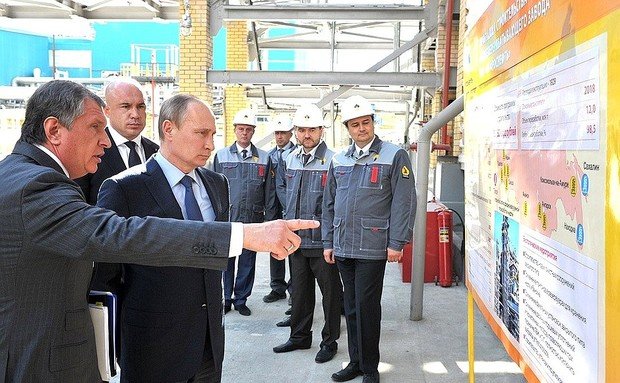Russia raising hard-to-recover oil production
As the country’s access to foreign technology for tight oil is limited, local companies ''have advanced in this direction''
Depletion of Russia's conventional oil reserves in West Siberia is prompting oil producers to work actively on the extraction of hard-to-recover oil, which is hidden beneath non-porous rocks. Although relevant Western technologies are currently unavailable due to sanctions, the Russian Ministry of Energy expects the production of hard-to-recover oil to grow by 10% compared to the previous year.
The production of hard-to-recover oil in Russia is expected to rise by 10% to 43 million tonnes (860,000 bpd) this year thanks to tax incentives, reports Reuters citing Russian Deputy Minister of Energy Pavel Sorokin. The output is growing despite US sanctions, which prohibit providing Russia with technologies for hard-to-recover oil. ''Many of our companies have advanced in this direction,'' explained Sorokin.
Two year ago, Russia's biggest oil producer Rosneft reported that around 24% of its total crude reserves consisted of hard-to-recover oil. In 2016, this type of oil accounted for about 7% of Rosneft's total output. The share was expected to rise to 11% by 2020.
Hard-to-recover oil refers to reserves trapped between layers of rock, which cannot be accessed using conventional, vertical drilling. It requires special techniques that are similar to methods used to extract shale gas and oil, such as drilling horizontal wells and fracking. According to Russia's oilfield license regulator Rosnedra, the country's hard-to-recover oil reserves total 12 billion tonnes (88 billion barrels), which is enough to supply the world with oil for 20 years. Thus, tight oil accounts for about two-thirds of Russia's overall oil reserves. In order to boost hard-to-recover oil production, the government has introduced special tax incentives, such as a zero-rate mineral extraction tax. The ministry expects that domestic oil production will amount to 553 million tonnes in 2018, up from 547 million tonnes last year.

Speaking about the situation on the local oil products market, Sorokin said that the ministry had no immediate plan to restrict oil exports in order to dampen domestic fuel prices. At the moment, it is more profitable for companies to export fuel than to sell it on the domestic market due to several reasons, including the weakening of the ruble. However, the deputy minister pointed out that there were no fuel shortages on the domestic market. ''We're not talking about physical restrictions at the moment,'' he said.